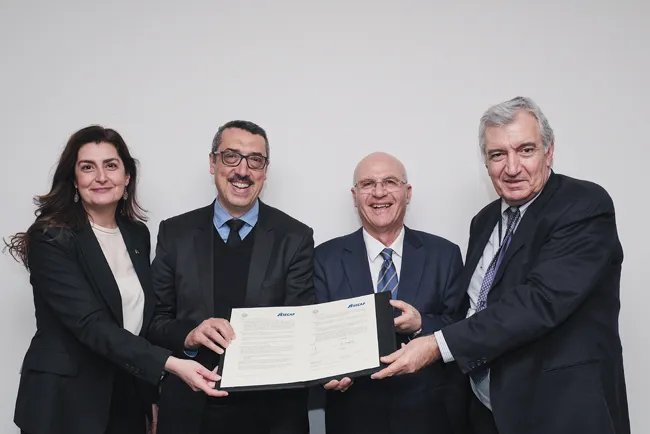
The 12th ASECAP Annual Road Safety Conference organised at the European Parliament in Brussels on 18th March set the scene for the signature of a Memorandum of Understanding between the International Road Federation (
Signed by Anouar Benazzouz, Vice President of IRF, Susanna Zammataro, Director General of IRF, Bill Halkias, President of
"Road Safety is indeed one of the key issues we will be working on with IRF but definitively not the only one. Infrastructure financing, intelligent transport systems (ITS), traffic and infrastructure management and mobility issues at large are also some of the other items we will be digging into with IRF," said Bill Halkias.
"We have always strongly believed in the power of collaborations and that's why we are delighted to open up a new chapter in our collaboration with ASECAP with the signature of this MoU. Technology is set to transform and impact our sector and society in ways we cannot fully predict but must be prepared to manage. It is only by working together that we will be able to deliver the desired outcomes whether on road safety or overall delivery on the sustainable development goals (SDGs)" commented Anouar Benazzouz.
The 12th ASECAP Road Safety Conference held at the European Parliament in Brussels focused specifically on "Distraction" and saw the intervention of Matthew Baldwin, Deputy Director General DG Move and European Coordinator for Road Safety (European Commission) together with key other stakeholders from the road infrastructure and the automotive sector.
Rural Roads for Development: training course
The University of Birmingham, in association with the International Road Federation (Geneva) is pleased to offer this hands-on training course in the area of rural roads that will be hosted in Birmingham, UK on 9-13 September 2019.
The course is a 5-day, intensive and practical residential programme delivered by experts of international repute. It is aimed at road engineers, managers, and other road sector professionals who work in the areas of rural roads, feeder roads, road management, road financing and road maintenance.
This course provides an introduction to building and maintaining rural roads for development and includes:
• Analytical framework for understanding rural transport
• Pro-poor transport appraisal including methods for capturing non-monetary benefits
• Rural Road design and construction
• Labour-based and intermediate technologies
• Implications of climate change
The course will include laboratory sessions to better understand simple tests which can be used in the field to determine soil properties required for appropriate design and maintenance.








